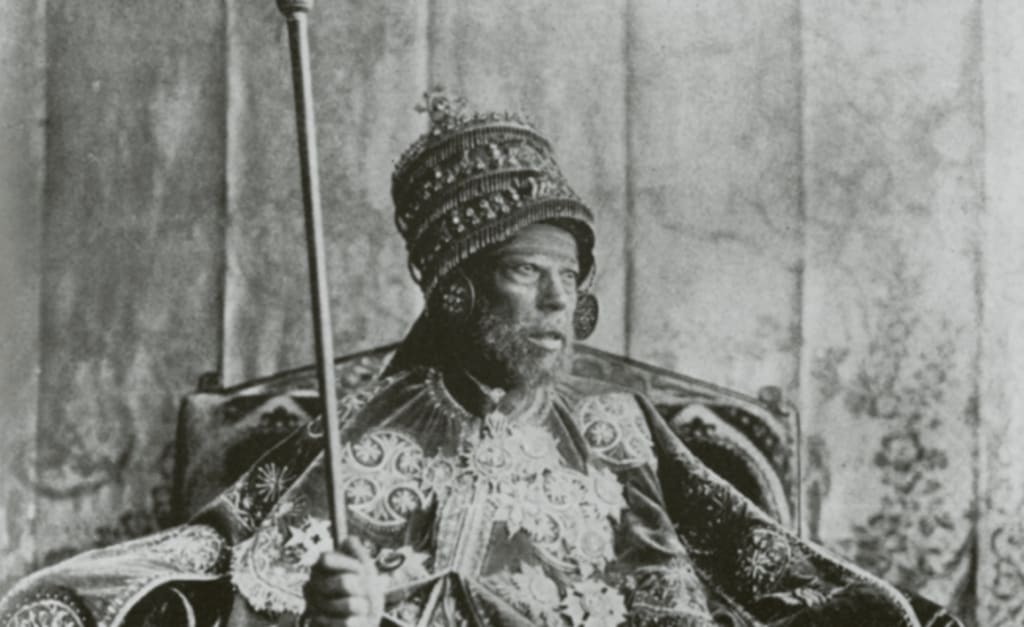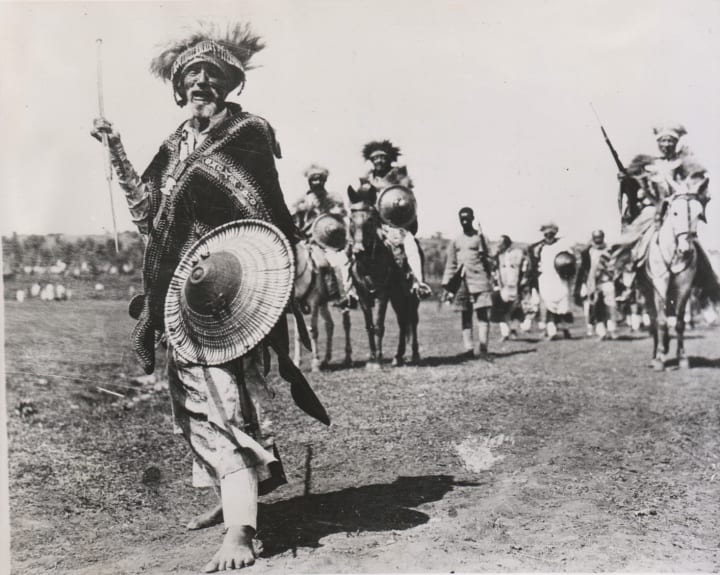The battle of Adwa (1869)
Black history month

I'd like to first start off by saying happy national Black history Month!
I've been excited for this month to come up, so as a black community we can celebrate our freedom and pride together. And at this point this gives me the chance to educate not just you, but me as well, on the history of the battle of Adwa, which took place in my lovely homeland Ethiopia.
The country is full of wonders, and it has a proud and strong history behind it. Today i'd like to take a look at the first battle between Ethiopians and the Italians, and how they succeeded in never being colonized.
How it began.
Around the end of the 19th century, Europeans have basically took over almost all of Africa, due to the Berlin Conference, giving them power over most of the land. But, they never succeeded over colonizing Ethiopia. Their plan was to conquer over Ethiopia, and then join it's territory with Italian Eritrea and Italian Somaliland, which were already in possession of the Italians. "King Menelik ll pitted Italy against it's European rivals while stockpiling advanced weapons to defend his empire against the Italians and British" (en.wikipedia.org).
After king Yohannes IV had passed away, is when Menelik took over as king and began a treaty between the Europeans, which was known as "The Treaty Of Wichale", in which the Italians promised to provide a loan to Ethiopia.The treaty included consent from Ethiopia to rule over the neighbouring coastal colony of Eritrea. Conflict suddenly began between the two countries when they both misinterpreted one of the articles in the treaty, also known as Article XVII. King Menelik thought the article stated that "Ethiopia can choose to utilize the Italian Government in dealing with other foreign powers"(www.britannica.com), whilst Italy's premier Francesco Crispi thought it stated "Ethiopia must utilize the Italian government, therefore implying the declaration of an Italian protectorate over Ethiopia" (www.britannica.com).
Menelik first refused Francesco's statement in September of 1890, and then repudiated the treaty all in one around 1893. He became very conscious of the Italian troops in the neighbouring colony, Eritrea, and began to prepare for combat in case of any attempt by the Italians trying to impose dominion military.
Conflict and War
"Italian successes at the beginning of the campaign were brilliant but fruitless, and large Ethiopian armies were threatening the Italian outposts at the end of 1895. " (www.britannica.com). Menelik had a much stronger and organized army in the beginning of the war, with up to 100,000 soldiers ready to fight by his side armed with modern weaponry. In order to fool his rivals, he did spread false reports that the number of his troops was much smaller, and that he had widespread discord amongst his forces, a tricky way to fool his rivals. "The Italian governor and military leader of Eritrea, Gen. Oreste Baratieri, sighted Menilek’s forces on February 7, 1896, but was cognizant of the many challenges facing the Italian army at the time—inadequate supplies of food, water, clothing, and weapons that were in working order and a lack of reliable maps" (www.britannica.com). Menelik was also put into the same situation, not having enough food and clothes to hold off and get directly into battle, then making both sides wait for the other to strike.
Menelik and his troops preparing for war (Credit: newafricanmagazine.com)

"Baratieri was convinced to enter into battle. Despite some misgivings, he later gave the order to advance to Adwa with 14,500 men against an Ethiopian army of some 100,000. The Italian columns, in addition to having to deal with the lack of adequate supplies, were disorganized and unable to successfully navigate the terrain. Routed on March 1 by Menilek’s forces, the Italians retreated through difficult terrain." (www.britannica.com).
While in confrontation, over 6,00 italian troops were killed, their estimated overall troops used to be 14,500 men against 100,000 Ethiopian troops. Their remaining troops mostly being Askari Forces (hired african troops that were trained by the Italians). Even more ethiopian troops were hurt or killed in war than Italy's troop, but it was only a small percentage. over 5,000 wounded and 8,000 killed, yet leaving more troops for battle.
Outcome
In October 1896, the "Treaty of Addis Ababa" was finally signed, whilst the "Treaty of Wichale" was abrogated and settled peace in Ethiopia, letting the Italian colony of Eritrea be delimited by a treaty of peace.
"Menelik’s victory over the Italians gave him significant credibility with the European powers, bolstered his mandate at home, and provided the Ethiopian kingdom with a period of peace in which it was able expand and flourish" (www.britannica.com). A various amount of treaty's began between Ethiopia and other countries like France, Great Britain, and Italy up to 1908. The borders of Ethiopia were fixed with the neighbouring territories ruled by the European powers, and the war was finally over.
Although conflict sprang back up in the future, there was finally peace at the end.
Ethiopia never gave up it's pride, and fought for it's right to be a free country that was never even ONCE colonized or ruled by another. This war should be remembered in our history, as it only made us stronger.
~Thanks for reading, happy National Black history Month! :)
About the Creator
Danat Daniel
an aspiring rap artist who does poetry because im cool like that






Comments
There are no comments for this story
Be the first to respond and start the conversation.